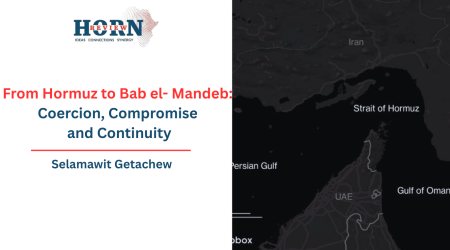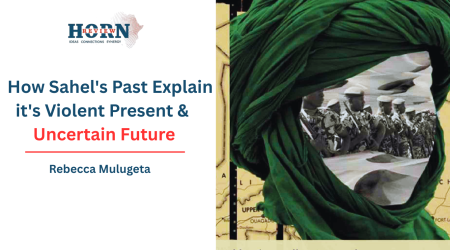
16
Jun
The End of Voice of America: Media, National Interest, and the Diaspora Dilemma
From the outset of his second presidency, Donald Trump’s administration embarked on a deliberate dismantling of institutions that had long been corrupted by what the President himself terms as those who propagate “the woke culture”. At the core of this transformation was a reorientation of U.S. foreign policy away from globalist, interventionist objectives.
Traditional neoliberal institutions, such as USAID, the National Endowment for Democracy (NED), and media outlets under the U.S. Agency for Global Media (USAGM), were scrutinized, rebranded, and in several cases, their missions realigned or reversed entirely.
A striking example is Voice of America (VoA), historically commissioned to broadcast “independent news” in what were considered communist or authoritarian contexts. In March, a late-night executive order effectively shut down VoA by placing its journalists on administrative leave and transferring its function to partisan entities such as One America News Network, all in the name of rooting out what the administration described as “woke” and “propaganda-driven” content. The order was defended under an America First banner, asserting that Voice of America no longer reflected American values or national interests.
Trump’s policy, therefore, represents a moment of introspection on long-standing American strategies that leveraged soft power to “advance democracy, economic liberalism, and human rights” abroad.
The White House had grown increasingly sceptical, depicting Voice of America and its sister institutions as breeding grounds for divisive and interventionist-driven discourse rather than vehicles of principled foreign policy. By eliminating or defunding these entities, the administration sought to curtail their influence, arguing they no longer pursued objectives aligned with conservative values or genuine national interest.
The inspection of these institutions has long been the call for many in the international community. Critics across the world have tracked how these institutions, particularly VoA’s Horn of Africa service, deviated from their original charter. Investigative reporting has exposed biased coverage in Ethiopia, highlighting coverage of government-defaming narratives, selective reporting on atrocities, and editorial manipulation stemming from internal political allegiances. Former staffers have also exposed how the leadership within the VoA steers coverage to favour certain ethnic or political factions, thereby sowing division among listeners.
These disruptions were not benign. For Ethiopians both at home and in the diaspora, VoA’s Amharic broadcasts became conduits for incendiary rhetoric. Under the flag of Woke interventionism and with a sense of moral superiority, diaspora figures with vested interests in Ethiopia’s internal power struggles used the platform, under the protection of U.S. free speech laws, to advocate radical positions, incite ethnic animosity, and even call for Ethiopia’s fragmentation. The station’s reach, under the guise of liberal democratic values, enabled radical agendas to migrate freely across borders. With legal frameworks at home often capable of constraining such rhetoric, the United States effectively became a haven for extremist diaspora narratives with real-world consequences.
VoA’s editorial failures deepened Ethiopia’s already fraught ethnic federalism. Instead of offering balanced reporting, the service amplified voices that called for forcible regime change, ethnic secession, and the disintegration of the Ethiopian state along identity lines. These narratives exacerbated intercommunal tensions in a society already weakened by recent conflict.
While legal frameworks in Ethiopia do address hate speech and calls for violence, the VoA broadcasts operate outside these jurisdictions. The U.S., according to global critiques, became a defacto safe zone: protected by First Amendment guarantees, diaspora voices could organize, radicalize, and broadcast with impunity, while their impact reverberated across borders and inflicted real political and ethnic harm in Ethiopia.
Trump’s administration may have, at least on the surface, come to this realization. The proponents within Trump’s circle maintain that the dismantling reflects necessary accountability: VoA and affiliated bodies had strayed from their normative missions and were instrumental in propagating internal U.S. ideological battles, specifically around culture and identity, rather than advancing coherent geopolitical objectives.
The President’s strategy, then, constitutes a self-examination of America’s post–Cold War international role. It questions the assumptions that underpinned U.S. engagement. It recognizes that liberal “order-building, democracy promotion, and economic intervention” have diverted to the spread of woke liberal culture and have destabilized numerous states. On the contrary, it asserts that mechanisms built to project American values abroad had morphed into engines of ideological warfare, waged from U.S. soil with scant accountability and under the aegis of “progressive” doctrines.
The purging of VoA exemplifies a broader repositioning. Trump may be heading towards a foreign policy that values efficiency, ideological consistency, and domestic coherence over the expansive moral universalism of previous administrations. While it may close platforms that once disseminated soft power, the administration also closes the gateway for unchecked diaspora-fueled destabilization.
The legacy of the neo-liberal voices is enduring outside these institutions. The voices, clocked under the protection of neo-liberalism, had sown division and animosity amongst the Ethiopian people. The voices of the Diaspora, particularly those with radical interests, continue to echo loudly within the Ethiopian political landscape.
While the radio and televised platform once offered by Voice of America has largely been replaced by social media platforms like YouTube, the fundamental challenge remains.
The United States finds itself in a peculiar situation; only in America do citizens enjoy the full protections of U.S. constitutional freedoms while remaining deeply entangled in the political conflicts of their countries of origin. Armed with American passports and shielded by First Amendment protections, these diaspora actors are able to spread divisive and at times hateful agendas without fear of legal consequence. For Trump, the next challenge lies in how to manage this complex intersection of domestic free speech rights and the foreign destabilization they can facilitate.
American interests, which ultimately are the main drivers of foreign policy discourse, may coincide here with the interests of Ethiopia. For the Trump administration’s plans to engage in a reciprocal relationship based on principles of non-interference, addressing these issues may emerge as a priority. The closing of the VoA thus opens the door to address a deeper issue, one that involves the unintended consequences of unregulated diaspora influence on other states.
In this context, examining the balance between domestic liberties and foreign responsibility may become essential, not only for safeguarding American credibility but also for preventing the export of internal polarization to regions like the Horn of Africa.










